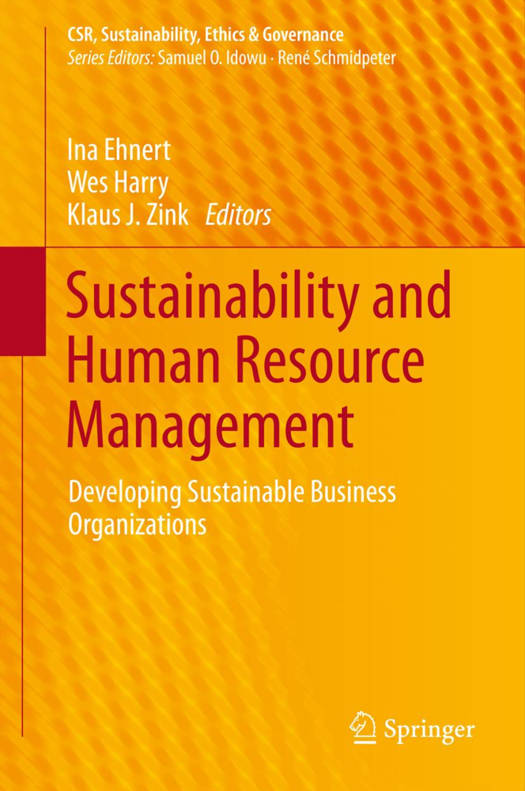
- Afhalen na 1 uur in een winkel met voorraad
- Gratis thuislevering in België vanaf € 30
- Ruim aanbod met 7 miljoen producten
- Afhalen na 1 uur in een winkel met voorraad
- Gratis thuislevering in België vanaf € 30
- Ruim aanbod met 7 miljoen producten
Zoeken
Sustainability and Human Resource Management
Developing Sustainable Business Organizations
€ 195,95
+ 391 punten
Omschrijving
The role of HRM in developing sustainable business organizations is increasingly attracting attention. Sustainability can be used as a principle for HRM itself and the tasks of Sustainable HRM are twofold. On the one hand it fosters the conditions for individual employee sustainability and develops the ability of HRM systems to continuously attract, regenerate and develop motivated and engaged employees by making the HRM system itself sustainable. On the other hand Sustainable HRM contributes to the sustainability of the business organizations through cooperation with the top management, key stakeholders and NGOs and by realising economic, ecological, social and human sustainability goals. This book provides a comprehensive review of the new area of Sustainable HRM and of research from different disciplines like sustainable work systems, ergonomics, HRM, linking sustainability and HRM. It brings together the views of academics and practitioners and provides many ideas for conceptual development, empirical exploration and practical implementation. This publication intends to advance the international academic and practice-based debates on the potential of sustainability for HRM and vice versa. In 19 chapters, 26 authors from five continents explore the role of HRM in developing economically, socially and ecologically sustainable organizations, the concept of Sustainable HRM and the role of HRM in developing Sustainable HRM systems and how sustainability and HRM are conceptualized and perceived in different areas of the world.
Specificaties
Betrokkenen
- Uitgeverij:
Inhoud
- Aantal bladzijden:
- 442
- Taal:
- Engels
- Reeks:
Eigenschappen
- Productcode (EAN):
- 9783642375231
- Verschijningsdatum:
- 30/06/2013
- Uitvoering:
- Hardcover
- Afmetingen:
- 161 mm x 242 mm
- Gewicht:
- 834 g

Alleen bij Standaard Boekhandel
+ 391 punten op je klantenkaart van Standaard Boekhandel
Beoordelingen
We publiceren alleen reviews die voldoen aan de voorwaarden voor reviews. Bekijk onze voorwaarden voor reviews.










